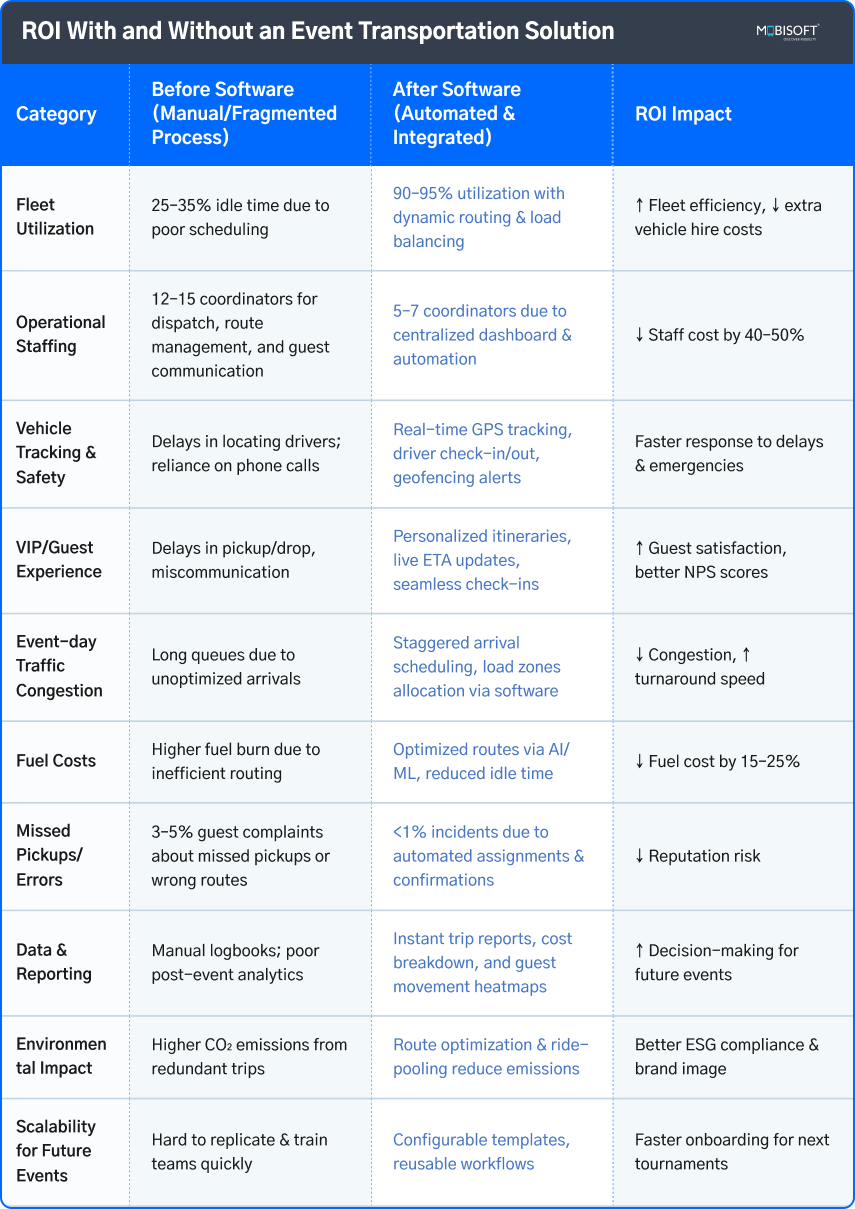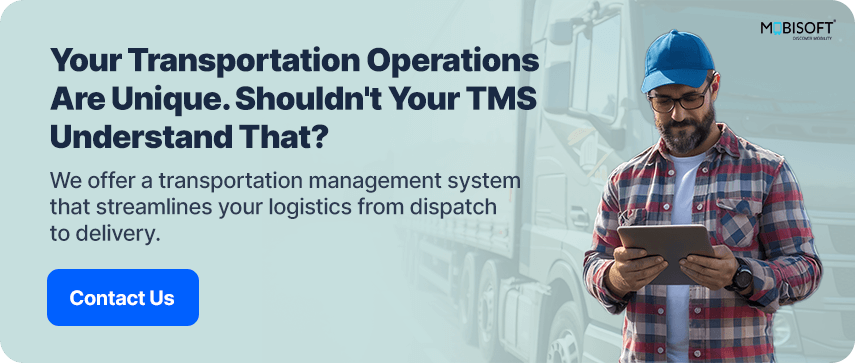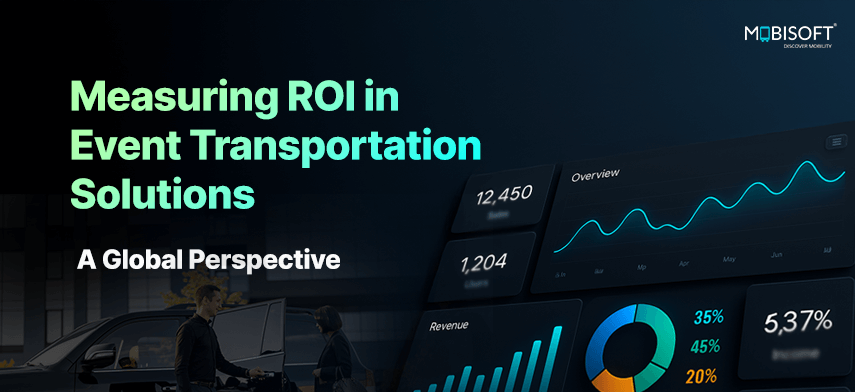“In 2018, sports travel accounted for 8 percent of the total domestic travel market, translating into 190 million trips and $41 billion in spending.” (U.S. Travel Association)
This figure shows how big the sports travel and event logistics sector has become. The scale is hard to ignore. Still, when you look beyond the surface, past each tournament or global championship, one core question always sits there: how do transportation leaders gauge the return on investment (ROI) of moving thousands of athletes, VIPs, media teams, and fans, all while keeping everything smooth and safe? That’s the challenge everyone in event transportation management faces.
To explore how modern technology is reshaping event logistics, check out this in-depth guide.
Today, ROI in event transportation goes far beyond cost savings. It’s about transportation efficiency, guest experience, sustainability, and legacy, the pillars that define whether event transportation services are seen as an operational headache or a strategic advantage.
Defining ROI Beyond Cost

When people usually think of ROI (Return on Investment), they imagine financial accounting, how much money was spent, and how much came back. But in the world of event logistics and event transportation solutions, ROI is much bigger than that. For transportation managers, heads of logistics, and event operations leaders, ROI means measuring the true value that enterprise transportation services add to a sporting event.
Operational Value
A sporting event logistics plan goes a long way. The right approach keeps vehicles in rotation and minimizes wasted runs. Drivers stay busy, not idle. Event shuttle services stick to their schedules. All of this cuts down on idle time and keeps arrivals and departures management on track. Every piece feeds straight into a stronger operational ROI.
Guest Satisfaction
Transport often sets the tone for the whole event. It’s the first hello at the airport and the last goodbye after the finals. A smooth pick-up, a stress-free ride to the venue, or a perfectly timed shuttle during departures is how guests remember the event. When they leave happy, satisfaction scores rise, and so does transportation ROI.
Event Reputation
A single mishap, like a delayed VIP corporate event transportation shuttle or long queues caused by an inefficient accreditation system, can overshadow the success of the entire event. On the other hand, flawless event transportation logistics reinforce the image of a world-class event. This reputation builds trust with sponsors, sports federations, and fans. It also plays a big role in the chances of landing future events.
Long-Term Legacy
The effect lasts beyond the final whistle. When a city or organization nails reliable event mobility solutions and sustainable event transportation, it earns credibility that pays off for hosting future tournaments, championships, and even large conferences. Think about London’s Olympics; the investments made in global transportation solutions created a lasting legacy for the city’s residents.
For a deeper look at how software enhances ROI, explore our detailed overview of event transportation solutions.

Breaking Down ROI Further
Direct ROI (easy to measure in numbers)
- Vehicle Utilization Rate: How well the fleet covers multiple shuttles and transfers without waste.
- Cost per Transfer: Cost per Transfer: The average price to move one passenger, usually trimmed by sharing rides and strong transportation cost analysis.
- Punctuality Metrics: Tracking how often arrivals and departures happen on schedule.
Indirect ROI (harder to measure, but equally important)
- Guest Sentiment: What passengers say about their event transportation services.
- Brand Impact: Smooth event transportation management boosts the event’s professional image.
- Sponsor Trust: How much confidence sponsors gain when their guests see reliable operations.
- Sustainability Appeal: Using eco-friendly options like electric shuttles and low-emission buses that fit global green goals.
Put simply: Every airport transfer, accreditation-linked ride, or shuttle departure is a chance to show professionalism, strengthen the event’s brand, and leave a good mark on athletes, VIPs, and other guests. If it falls short, frustration and a damaged reputation follow. Get it right, though, and it becomes a powerful, often overlooked driver of logistics ROI metrics in event transportation solutions.
The Challenges & Risks of Managing ROI Without Technology

Top transportation managers see how quickly things go wrong at big events. Without modern digital transportation solutions, small mistakes turn into costly problems.
Real-World Scenarios Leaders Can Relate To
Missed Airport Pick-Up
A VIP’s flight arrives 30 minutes early, but the driver has no heads-up. The guest waits at arrivals. One late pick-up might sound minor, but it damages the VIP’s impression and risks putting sponsors off.
Bottleneck at Accreditation Checkpoint
Athletes and officials show up at the same time, but paper-based checks slow things down. Dozens of shuttles sit idle outside, wasting fuel and holding up the next group. Idle vehicles mean costs piling up and transportation cost optimization slipping away.
Last-Minute Schedule Changes
A match runs into extra time, shifting hundreds of departures. Without real-time coordination, drivers get confused, passengers wait longer, and buses leave half-empty. This increases cost per transfer and frustrates attendees, cutting into ROI in event planning.
Communication Gaps
Passengers call coordinators asking, “Where’s my shuttle?” Meanwhile, dispatchers are busy managing phone calls from drivers. With no central visibility, information silos cause anxiety for guests and stress for staff.
The ROI Danger
Each of these situations may seem like an operational hiccup, but collectively they:
- Inflate costs (unused vehicles, extra driver hours, fuel waste).
- Damage guest experience (VIPs left waiting, attendees frustrated).
- Undermine trust with sponsors, federations, and media.
In short, without modern systems, measuring ROI in transportation becomes harder, and the value of event transportation systems is put at risk. You can also explore how automated event transportation compares to manual systems in driving efficiency.
From Chaos to Control: The Role of Technology in ROI

For years, managing event transportation logistics meant juggling spreadsheets, endless phone calls, and paper accreditation passes. Those ways got the job done when events were smaller. But today’s global sporting events have outgrown that patchwork approach. The complexity now demands something different.
Transportation managers now face:
- Thousands of simultaneous airport arrivals and departures.
- VIP and corporate event transportation demands with zero margin for error.
- Real-time adjustments due to weather, flight delays, or schedule shifts.
- Sustainability reporting requirements from sponsors and governing bodies.
Manual coordination simply cannot deliver the agility or visibility required at this scale. Technology-enabled event transportation solutions step in here. They unify operations across teams, dispatchers, drivers, and passengers, turning event logistics into a strategic advantage.
Capabilities like:
- Accreditation system integration that eliminates bottlenecks at venue gates.
- Automated airport pick-up and drop-off scheduling linked to real-time flight data.
- Live arrivals and departures dashboards that allow coordinators to predict and prevent delays.
- Mobile passenger updates that reduce anxiety and improve the guest experience.
Instead of “managing chaos,” leaders gain a centralized command center for ROI-driven event transportation solutions.
Discover best practices for managing VIP mobility in our resource on corporate event transportation.
ROI With and Without an Event Transportation Solution
One of the clearest ways to understand the value of event transportation solutions is to compare ROI outcomes side by side:

This comparison highlights why modern events are increasingly moving away from manual management. The difference is strategic.
Looking Beyond Costs: The Bigger ROI Picture
Event transportation management is no longer just about moving buses and cars from point A to point B. It has become a strategic layer of the event logistics experience, blending efficiency, sustainability, and inclusivity into a story that guests, sponsors, and federations notice.
Emerging Value Drivers
Tech-Driven Efficiency
With thousands of moving parts, manual coordination falls short. AI-powered dispatch tools and predictive routing now help optimize arrivals and departures, ensuring every vehicle is used to its fullest potential and delays are minimized. This directly strengthens ROI in transportation planning for events.
Sustainability Leadership
Sponsors and federations increasingly measure events by their environmental footprint. Eco-friendly fleets, shuttle pooling, and low-emission VIP transport are no longer “good-to-haves.” They directly influence ROI through reduced costs, compliance, and enhanced reputation in line with global logistics trends.
Inclusive Design
Accessibility is now a core driver of guest satisfaction. Wheelchair-accessible event shuttle services, clear signage, and thoughtfully planned pick-up zones ensure every participant feels valued. This inclusivity strengthens long-term ROI.
Digital Integration
Accreditation scans linked with airport pick-ups and shuttle schedules remove friction from the guest journey. Real-time updates on arrivals and departures reduce anxiety for passengers while giving coordinators full visibility, powered by digital transportation solutions.
Transportation leaders who frame ROI around these future-facing themes set themselves apart as innovators, building trust and long-term credibility in the global events space. For practical strategies on large-scale coordination, see our guide on mastering event transportation planning.
Avoiding Operational Pitfalls: The Costs of Inaction
When event transportation systems fail, the consequences ripple across multiple fronts:
- Delays: A VIP missing a session due to poor airport pick-up coordination damages credibility.
- Revenue Loss: Refunds, lost spending, and frustrated sponsors.
- Reputation Damage: Social media criticism and negative press erode trust in both the organizers and the event transportation services.
On the other hand, efficient accreditation systems, well-planned corporate event transportation, and streamlined arrivals/departures management elevate reputation, ensure ROI in event planning, and increase the chance of securing future global tournaments. To understand the hidden risks, explore our breakdown of the true cost of poor event transportation.
Conclusion: Elevate Transportation ROI from Logistics to Legacy
For those leading enterprise transportation services at major global sporting events, the takeaway stands firm: ROI goes beyond numbers. It reflects reputation, sustainability, and the experience guests take away.
Key ROI drivers include accreditation systems, airport pick-up and drop-off, event transportation solutions, and thorough planning of arrivals and departures.
If you’re evaluating technology options, this guide outlines key factors in choosing the right event transportation management solution.
Today’s event transportation management software offers a clear advantage over manual processes. They help measure, improve, and effectively showcase transportation ROI.
Leaders who look ahead lean on these tools to build a lasting legacy of excellence. Every seamless airport arrival, every VIP transfer that hits the clock, each event shuttle service verified through accreditation, these moments build trust, craft experiences, and deliver measurable ROI in logistics.
By keeping a global perspective, measuring with precision, and acting with strategy, those leaders are raising the bar for what world-class event transportation logistics can and should look like.





 August 4, 2025
August 4, 2025


